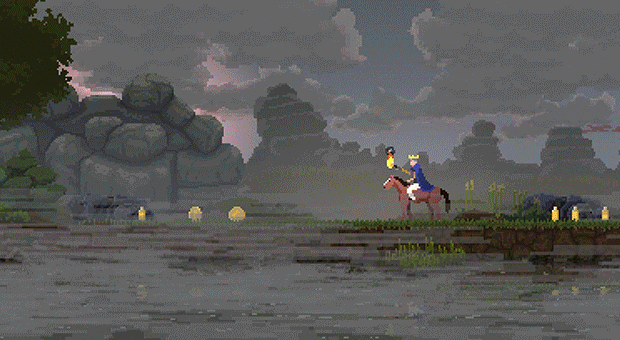I remember playing Kingdoms at PAX 2 years ago and while I liked it, it was really opaque and tough to get into. I assume it improved substantially between then and the game's release, but is it really something you can learn to play gradually without using a FAQ unlike so many other roguelikes?
Roguelikes are a genre in which your progress don't depend in your skills or abilities, but it depends of your management of a knowledge.
In a good roguelike, all is about this knowledge of the rules of the world linked to a progression.
Giving the permadeath intrinsic rule in these games, to die is as much as to earn a high level of experience and improving your character through this knowledge: this concrete death will teach you a new rule to survive, a new fixed parameter about the behavior of a creature or a mechanism in the game.
'
Kingdom: New Lands' perfectly understands this mysterious essence of the old classic roguelikes, and it tries to construct its lore and universe relying in this crypticism.
It's a game sustained in its ambience and with a very slow pace, centered around observing and feeling immersed into a natural environment with rules that you still need to discover, infused with the same
ethos than the first 'Zelda' for NES or than its spiritual successor, 'Breath of the Wild'.
With all of that said, the developers created a game that you can learn to control and being able to understand in every essential thing from a mechanical standpoint in less than 5 minutes, with a control scheme using only 2 directional buttons and an action button, showing a true mastery regarding video game design.
Yeah, every rule of its world is opaque in an intentional way. But I will say that is not more opaque than the first 'Zelda' for the NES played without a guide, and 'Dark Souls' is much more opaque and with a more complex set or rules without an explanation to the player.
Because contrary to the current tendency of explaining every single rule in a video game in evident ways through tutorials, these games are trying to let a door open to the mystery, to reward the curiosity of the player.
And it's great that in the current market, there are still developers taking the risk of this concrete approach to video game design.


